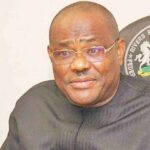
There was a low turnout of eligible voters and late commencement of voting during the Federal Capital Territory Area Council election in Abuja on Saturday.
The council poll also witnessed vote-buying while the technology deployed by the Independent National Electoral Commission, Biometric Voter Accreditation System, did not function properly, thereby disenfranchising many voters.
Several polling units in the six area councils visited by our correspondents had a few or no voters at all.
The area councils are Abaji, Bwari, Gwagwalada, Kuje, Kwali and the Abuja Municipal Area Council.
The election will see the emergence of six chairmen for each area council and 62 councillors.
A total of 478 candidates from 14 political parties participated in the election across the six area councils.
At Ward 04, Wuse Polling Unit 26, Maitama Model Primary School, visited, INEC officials were on the ground but voters were absent as of 9:30am.
Although the polling unit, which has 5,617 registered voters, is one of the largest in the FCT, voting had, however, yet to commence as of 10am.
The Assistant Presiding Officer, Muhammad Jamal, lamented the low turnout of voters, adding that only three voters had approached the election officials two hours after they arrived at the unit.
Voting was originally scheduled to begin by 8:30am and end by 2:30pm.
However, in many polling units, electoral officials did not arrive on time.
At the Masalachi Junction, (PU006) in Karu, AMAC, electoral officials and voters did not arrive at the PU before 9am.
Aside from the late arrival of INEC officials and materials in some PUs, there were widespread complaints about the malfunctioning of BVAS machines.
The BVAS, which replaced the smart card reader, has the dual capacity for fingerprint and facial identification to prevent the use of stolen voters cards or impersonation.
In some of the PUs in Area 2, voters were seen complaining about the BVAS.
A voter, Babatunji Olaifa, who was at the Government Secondary School, Tundun Wada, Zone 4, Wuse, Abuja, said, “As I got to my specific booth (11), the youth corps member took my card and said I had to have my picture taken for verification. She, however, insisted that I must smile for my features to be captured. I have never heard such a statement since I started voting in 1983.
“Shockingly I could not be verified either through the picture or my fingerprints. Note that I have voted at this same polling booth since the advent of our democratic process in 1999 without any issue and with the same voter’s card since these current ones have been in place. I find it both reprehensible and outright unnecessary for INEC to stipulate more than the presentation of a voter’s card by the person whose picture is on the card. I am trying to imagine how many potential voters have been disenfranchised for this same reason who can’t speak.”
Speaking with journalists after the election, the INEC FCT Resident Electoral Commissioner, Yahaya Bello, admitted that there were glitches with the usage of the Bimodal Voters Authentication System machines during the election.
Meanwhile, an election monitoring group, Yiaga Africa, on Saturday released its preliminary reports, identifying late commencement of polls, poor functionality of the BVAS machines, communication glitches among other operational deficiencies that characterised the council polls of the FCT.
The Executive Director of Yiaga Africa, Samson Itodo, said, “For instance, several polling units in Abuja Municipal Area Council, especially Gwarimpa and Orozo ward, opened late as polling officials couldn’t deploy without security protection. On average, accreditation and voting commenced at 10am in most polling units observed.”
Speaking on the functionality of BVAS, Yiaga said its observation showed that in some cases the BVAS failed to authenticate both the fingerprints and facial biometrics of voters in some polling units.
The organisation also identified voter disenfranchisement as a result of missing names on the voter register, despite some voters having PVCs
Yiaga Africa said it also observed that the imbalance in the distribution of voters to new polling units affected the effective management of polling units with over 1,000 registered voters.
According to Itodo, the development led to overcrowding in some polling units, while some other units had as many as 2500 registered voters and a few had less than five voters within the same location.
Also, a coalition of over 70 civil rights organisations, under the aegis of the Nigerian Civil Society Situation Room, expressed disappointment over the commercialisation of votes during the poll.
The Convener of NCSSR, Ene Obi, raised this issue in its preliminary statement on the election held in the FCT.
She said, “There was vote-buying and selling in some of the polling units. In a particular instance at PU 001, JAMB Secretariat, money was thrown into the crowd in the centre of the polling area, leading to security personnel shooting in the air to disperse voters.
Copyright PUNCH.
All rights reserved. This material, and other digital content on this website, may not be reproduced, published, broadcast, rewritten or redistributed in whole or in part without prior express written permission from PUNCH.
Contact: [email protected]





